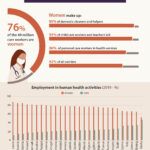On Wednesday, Parliament approved the EU’s accession to the Convention on preventing and combating violence against women.
Six years after the EU signed the Istanbul Convention – the first legally binding international instrument on preventing and combating violence against women and girls – it has still not been ratified because of the refusal of a few member states, despite Parliament’s multiple calls to this end. However, the EU Court of Justice’s opinion of 6 October 2021 confirmed that the European Union can ratify the Istanbul Convention without having the agreement of all member states.
The Court found that the appropriate scope for the EU’s accession is asylum, judicial cooperation in criminal matters, and obligations of the EU institutions and public administration. In line with this, on Wednesday MEPs voted to give their consent in two separate votes:
- on institutions and public administration of the Union with 472 in favour, 62 against and 73 abstentions,
- on judicial cooperation in criminal matters, asylum and non-refoulement with 464 in favour, 81 against, and 45 abstentions.
The EU’s accession to the Istanbul Convention does not exempt member states from ratifying it themselves, MEPs have repeatedly said, urging the remaining six countries – Bulgaria, Czechia, Hungary, Latvia, Lithuania and Slovakia – to ratify the Convention without delay, so that it can protect women to the full extent of the Convention’s intended scope.

Violence against women: European Parliament insists on ratification of the Istanbul Convention |
Quotes
Łukasz Kohut (S&D, Poland) lead MEP for the Civil Liberties, Justice and Home Affairs Committee, said: “Gender-based violence is the biggest unsolved daily problem in Europe. One in three women in the EU has experienced physical and/or sexual violence – around 62 million women. Enough is enough. The Istanbul Convention is recognised as the most effective tool for combating gender-based violence, as it imposes concrete obligations. A European law anti-violence umbrella will protect women and girls in Europe, through the EU’s accession to the Istanbul Convention.”
Arba Kokalari (EPP, Sweden) lead MEP for the Women’s Rights and Gender Equality Committee, said: “It’s time for the EU to ratify the Istanbul Convention. The EU must step up and go from words to action to stop gender-based violence, protect victims and punish perpetrators. I am very glad that the EU is finally taking the necessary steps for the safety and fundamental freedoms of women in Europe. After almost ten years of pushing from the European Parliament, now the ratification of the Istanbul Convention will raise standards in combatting and preventing gender-based violence.”
Next steps
The Council can now proceed with concluding the EU’s accession to the Convention.
Background
The Council of Europe Convention on preventing and combating violence against women (‘Istanbul Convention’) is the first international text that legally defines violence against women and establishes a comprehensive framework of legal and policy measures for preventing such violence, supporting victims and punishing perpetrators.
In October 2015, the Commission adopted a roadmap, which concluded that EU accession to the Convention would create a coherent EU level framework for combating violence against women, improve prevention for all women and afford better protection and support for women and children who are victims of violence and specific groups of women.







Leave a Reply